Law students vary in their amount and type of non-academic responsibilities, and they also vary in the degree to which they feel that their law school helps them cope with these responsibilities. In addition to their studies, some law students work, care for children or other dependents, and engage in community activities. We wanted to examine the degree to which students feel supported in these endeavors by their law schools.
Time Spent Caring for Dependents
Thirty-eight percent of law students spend at least one hour per week caring for dependents living with them (parents, children, spouse, etc.). Interestingly, there is little difference in the percentage of students with and without dependent care duties who feel that their law school emphasizes helping them cope with their non-academic responsibilities. About a quarter of each group (26% of students with dependents and 24% of students without dependents) feel well-supported. However, students with dependents are slightly more likely to say that their law school does very little to help them cope with non-academic responsibilities. Two out of five (42%) of students with dependents feel this way compared to 38% of students without dependents.
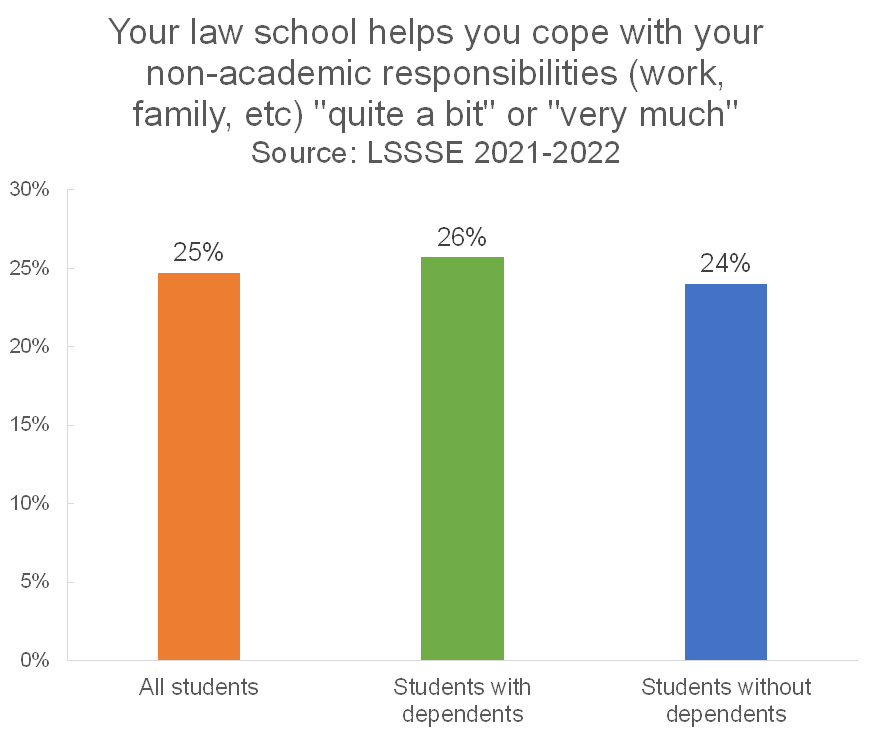
Gender and Dependent Care
However, there are huge differences by gender. Men with dependent care responsibilities are much more likely to feel supported by their law schools than women with dependent care responsibilities, and both groups feel more supported than people of other gender identities with dependent care responsibilities.
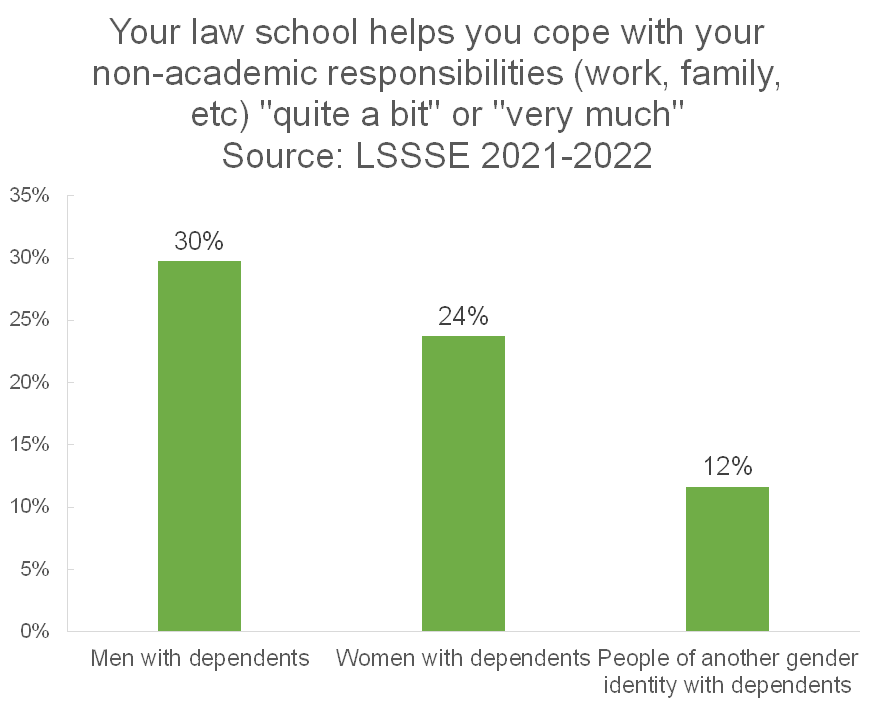
It appears, however, that this effect is more about gender and less about the dependent care responsibilities as we see this same disparity across gender among people without dependent care responsibilities.
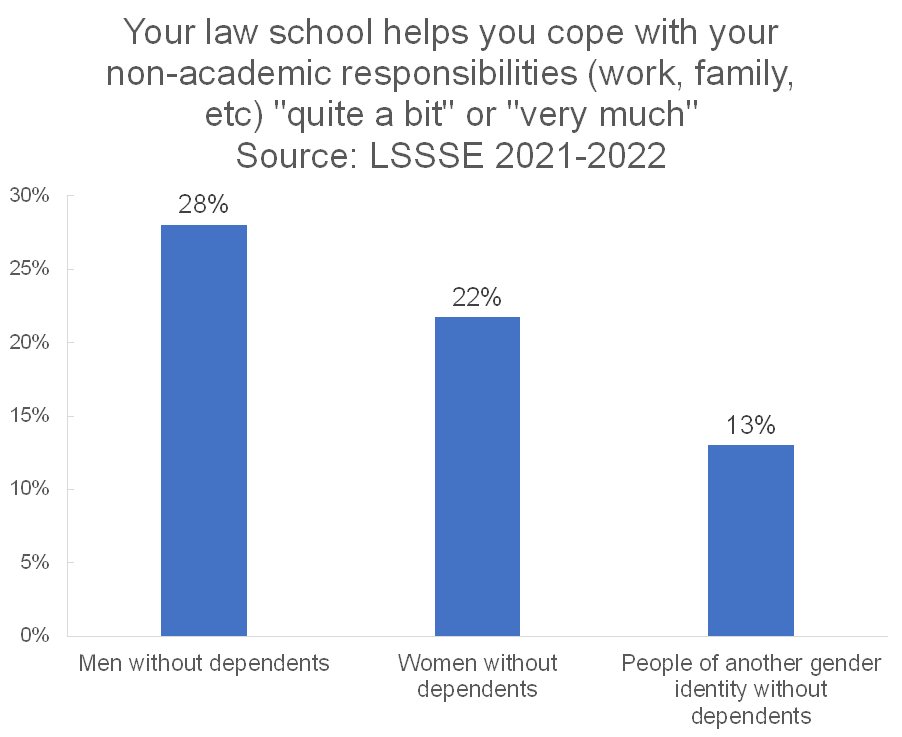
Time Spent Working for Pay
Similar to the pattern we see with dependent care duties, there is minimal difference in the perceived level of support for non-academic responsibilities between students who have jobs and students who do not. Around one in four students in either category say that their law school emphasizes supporting their non-academic responsibilities.
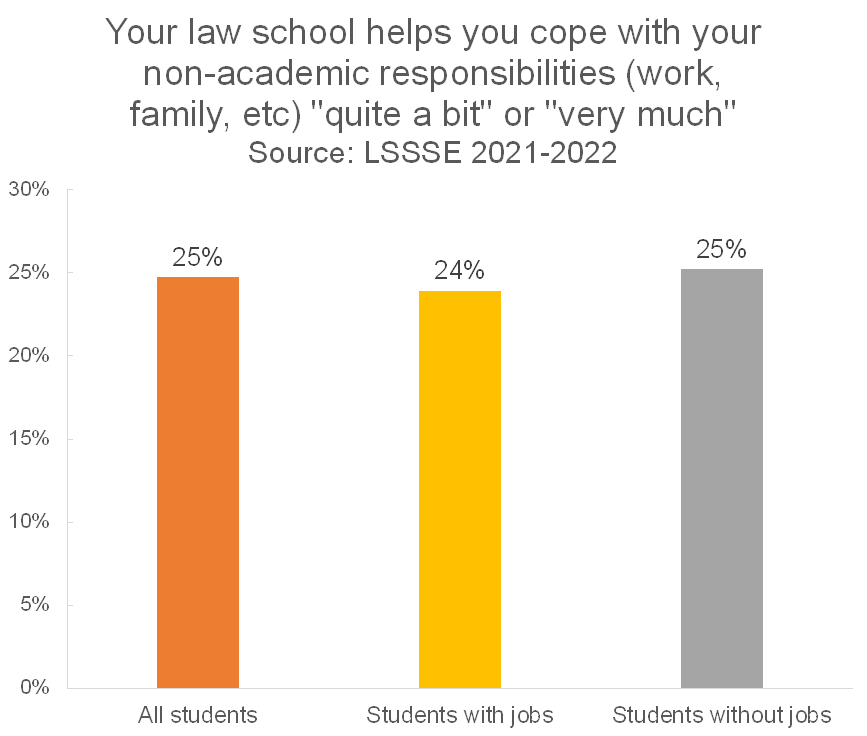
Gender and Employment
The gender pattern for perceived support is much the same for working/non-working students as it is for dependent care duties. Men are more likely to feel high levels of support than other students. However, people who identify as neither men nor women are actually more likely to feel highly supported in their non-academic responsibilities when they are employed (20% of students) relative to when they are not (6% of students).
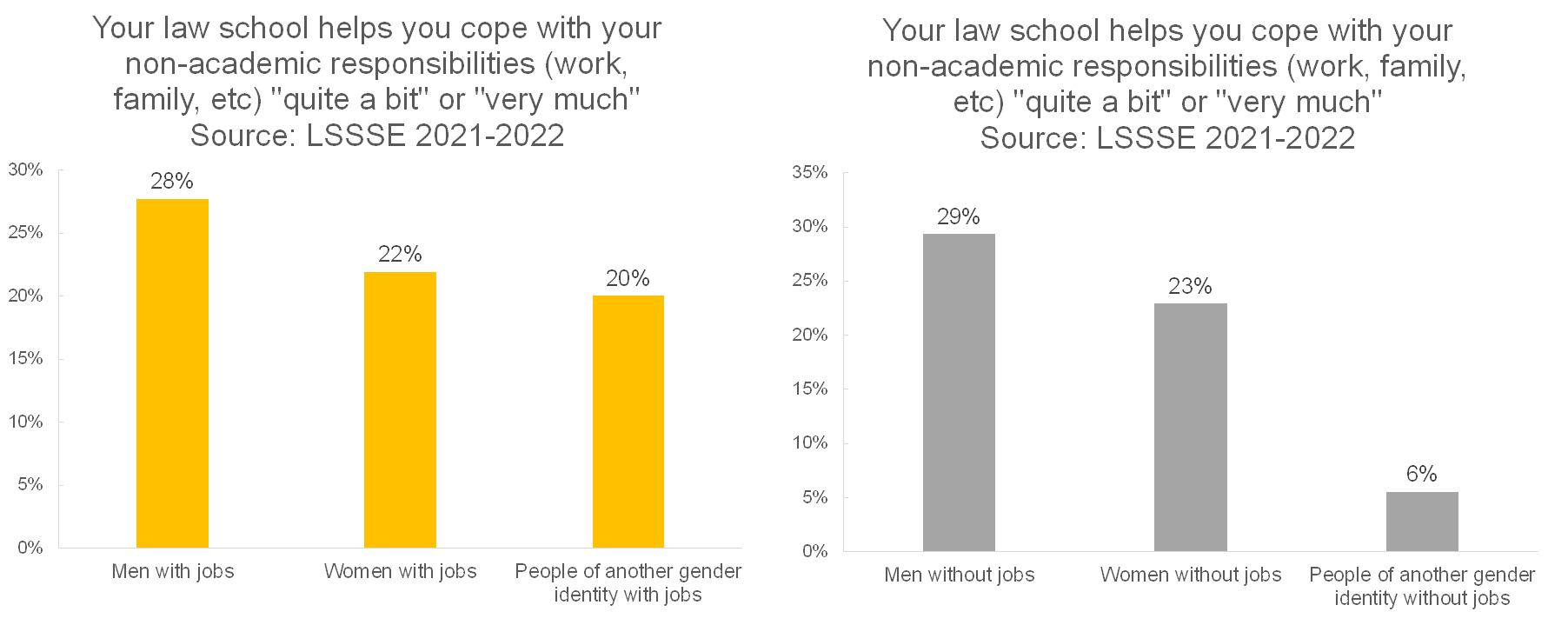
Regardless of how they spend their time outside of law school, men are much more likely to feel highly supported in their non-academic responsibilities, people of another gender identity are very unlikely to feel supported, and women generally fall somewhere in between. Adequate support for non-academic responsibilities clearly looks different for different people, and it appears that gender is a major factor. Rather than focusing on student populations based on which responsibilities they have and how they spend their time outside of the classroom, law schools may want to consider the unique needs of women and people of other gender identities to close the gap in the degree of support they feel about coping with their non-academic responsibilities.
